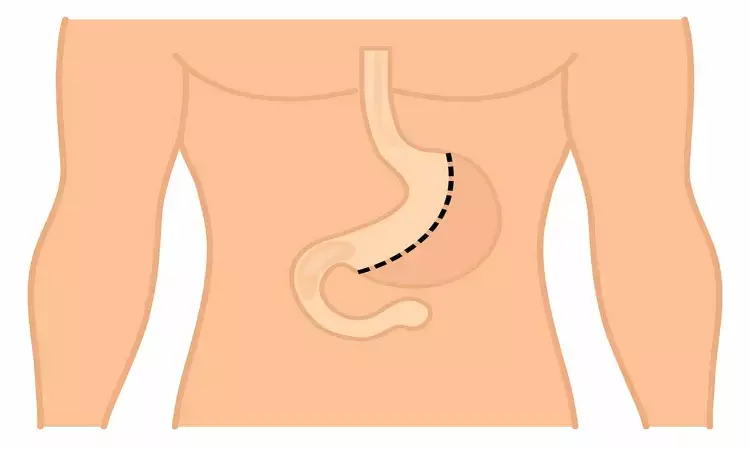- Home
- Medical news & Guidelines
- Anesthesiology
- Cardiology and CTVS
- Critical Care
- Dentistry
- Dermatology
- Diabetes and Endocrinology
- ENT
- Gastroenterology
- Medicine
- Nephrology
- Neurology
- Obstretics-Gynaecology
- Oncology
- Ophthalmology
- Orthopaedics
- Pediatrics-Neonatology
- Psychiatry
- Pulmonology
- Radiology
- Surgery
- Urology
- Laboratory Medicine
- Diet
- Nursing
- Paramedical
- Physiotherapy
- Health news
- Fact Check
- Bone Health Fact Check
- Brain Health Fact Check
- Cancer Related Fact Check
- Child Care Fact Check
- Dental and oral health fact check
- Diabetes and metabolic health fact check
- Diet and Nutrition Fact Check
- Eye and ENT Care Fact Check
- Fitness fact check
- Gut health fact check
- Heart health fact check
- Kidney health fact check
- Medical education fact check
- Men's health fact check
- Respiratory fact check
- Skin and hair care fact check
- Vaccine and Immunization fact check
- Women's health fact check
- AYUSH
- State News
- Andaman and Nicobar Islands
- Andhra Pradesh
- Arunachal Pradesh
- Assam
- Bihar
- Chandigarh
- Chattisgarh
- Dadra and Nagar Haveli
- Daman and Diu
- Delhi
- Goa
- Gujarat
- Haryana
- Himachal Pradesh
- Jammu & Kashmir
- Jharkhand
- Karnataka
- Kerala
- Ladakh
- Lakshadweep
- Madhya Pradesh
- Maharashtra
- Manipur
- Meghalaya
- Mizoram
- Nagaland
- Odisha
- Puducherry
- Punjab
- Rajasthan
- Sikkim
- Tamil Nadu
- Telangana
- Tripura
- Uttar Pradesh
- Uttrakhand
- West Bengal
- Medical Education
- Industry
Severe erosive esophagitis after laparoscopic sleeve gastrectomy associated with hiatal hernia

TAIWAN: According to a study published in Obesity Surgery, the male population and post-operative hiatal hernia are independent variables for an increased severity of erosive esophagitis (EE) following laparoscopic sleeve gastrectomy (LSG).
Modern-day obesity is a global problem that has a negative influence on health and the economy.
In bariatric surgery, laparoscopic sleeve gastrectomy (LSG) is frequently done. Uncertainty persists regarding the frequency and risk factors of gastroesophageal reflux disease (GERD) symptoms following LSG.
"Losing weight reduces gastroesophageal reflux disease (GERD), however laparoscopic sleeve gastrectomy (LSG), which alters the stomach's anatomy, may make GERD worse," Chao-Hung Kuo, Department of Internal Medicine, Kaohsiung Municipal Siaogang Hospital and team wrote.
The goal of the researchers was to identify the elements contributing to EE's increasing severity one year following LSG.
Between February 2007 and March 2016, data on patients who underwent LSG were examined. Anthropometric measurements both before and after surgery were taken, along with endoscopic findings. There were 316 patients enrolled in total. 96 patients (30.4%) had grade A or B EE prior to LSG. The Los Angeles grading system was used to determine the degree of EE severity; grade C or D esophagitis was considered severe EE.
Key findings of the study:
- 215 patients (68%) developed EE one year after LSG, of whom 136 (43%) had grade A, 62 (19.6%) had grade B, and 17 (5.4%) had grade C or D EE.
- 127 of 220 patients (57.7%) who had no EE prior to LSG had the development of de novo EE after LSG.
- In individuals without pre-operative EE, grade A EE, or grade B EE at baseline, the incidence of severe EE following LSG was 3.2%, 6.8%, and 50%, respectively.
- Male gender (OR = 2.55, 95% CI = 1.52-4.28) and post-operative hiatal hernia (OR = 3.17, 95% CI = 1.66-6.06) were independent predictors for a higher severity of EE following LSG.
The authors came to the conclusion that EE became more common and more severe following LSG. Patients who had neither grade A nor pre-operative EE at baseline have a low prevalence of severe EE following LSG.
REFERENCE
Tsai, YN., Tai, CM., Tu, HP. et al. Factors Associated with Increased Severity of Erosive Esophagitis 1 Year After Laparoscopic Sleeve Gastrectomy. OBES SURG 32, 3891–3899 (2022). https://doi.org/10.1007/s11695-022-06268-6
Dr Kamal Kant Kohli-MBBS, DTCD- a chest specialist with more than 30 years of practice and a flair for writing clinical articles, Dr Kamal Kant Kohli joined Medical Dialogues as a Chief Editor of Medical News. Besides writing articles, as an editor, he proofreads and verifies all the medical content published on Medical Dialogues including those coming from journals, studies,medical conferences,guidelines etc. Email: drkohli@medicaldialogues.in. Contact no. 011-43720751


